This page is currently not available, because not enough students attended the Fachschaftsvollversammlung (FVV) #
More information also on the Startpage.
Who are we and what do we do? #
Breaking into computers, hacking passwords, spying on other people’s data - these are some of the things that we admins deal with. But don’t worry, we don’t do this to other people’s systems or data of our users, rather we think about ways to prevent such actions on our own systems.
As admins of the student council, we take care of the computer systems and networks, servers, as well as workstations necessary for the student council work ranging from script printing and sales to locker management, freshmen information and college political work.
Under our control, we have a lot of interesting systems, hardware and techniques including Linux, BSD, LDAP, IMAP, Firewalls, Kerberos, Samba, Nginx, Ruby on Rails, Python, RAID, IPv6, Virtualization, Icinga…just to name a few.
If you are unfamiliar with some of the terms above, no worries - that was the case for us as well at the beginning. You’ll learn what you want, and get an insight into the rest. But there’s one thing you should bring along: interest and fun in this area. We don’t need script kiddies, wannabe “hackers” (“I hack every system, watch out…”) and people who primarily abuse the direct and unfiltered Gigabit access to the internet for their own purposes. But for reliable helpers there are still plenty of perks, not only in coffee…
If you are curious, enjoy experimenting, have an interest in learning a lot and engaging in this field, you are welcome to contact us anytime via mail or simply stop by the student council office.
We also organize the Hackingnight
Our systems #
For our work, we use multiple servers with over 128 cores and over 1.5 TB of RAM, on which we operate dozens of virtual machines.
In various virtual machines, we operate our own mail server, DNS server, web server, file server, FreeIPA server, as well as self-programmed administrative databases for locker rentals and our printing shop.
We have a total of 10 Linux workstations available in our office, printing shop, and script sales. These computers are connected to our infrastructure via LDAP and NFS. Thanks to virtualization, we can work not only on-site but also from outside the student council rooms.
Our fully redundant pfSense firewall ensures a high-performance connection between our network and the Munich university network on two separate servers. As a network, the Leibniz Computing Center provides us with full networking of all our rooms with Gigabit over HP managed switches. As an additional treat, all the LRZ’s WLAN access points radiate an extra network in our rooms that is connected to our regular office network.
Regular backups of all our data to the LRZ ensure that our work is not threatened by hardware failures. The Tivoli Storage Manager ensures that our data is stored on the huge tape robot of the LRZ and thanks to the super networking provides rapid backup.
We mainly use Debian and Ubuntu operating systems, but also Fedora. For Debian/Ubuntu, top-of-the-line mirror servers are usually only a few hops away and directly accessible with Gigabit.
Since our whole work from script and job printing to communication and freshmen introduction days, gallery festivals, and script sales depends on smooth IT operation, we use only professional server hardware including service and support, redundancies, either as disk RAID or redundant services on different servers, and of course an uninterrupted power supply. Nobody wants to miss out on script sales just because we have IT problems and cannot print or sell.
Interest in more details? #
This brief description was just a quick overview of our IT. If you want to experience it live or are interested in the other aspects of our multifaceted system, then just stop by or contact us at admin@fs.ei.tum.de.


